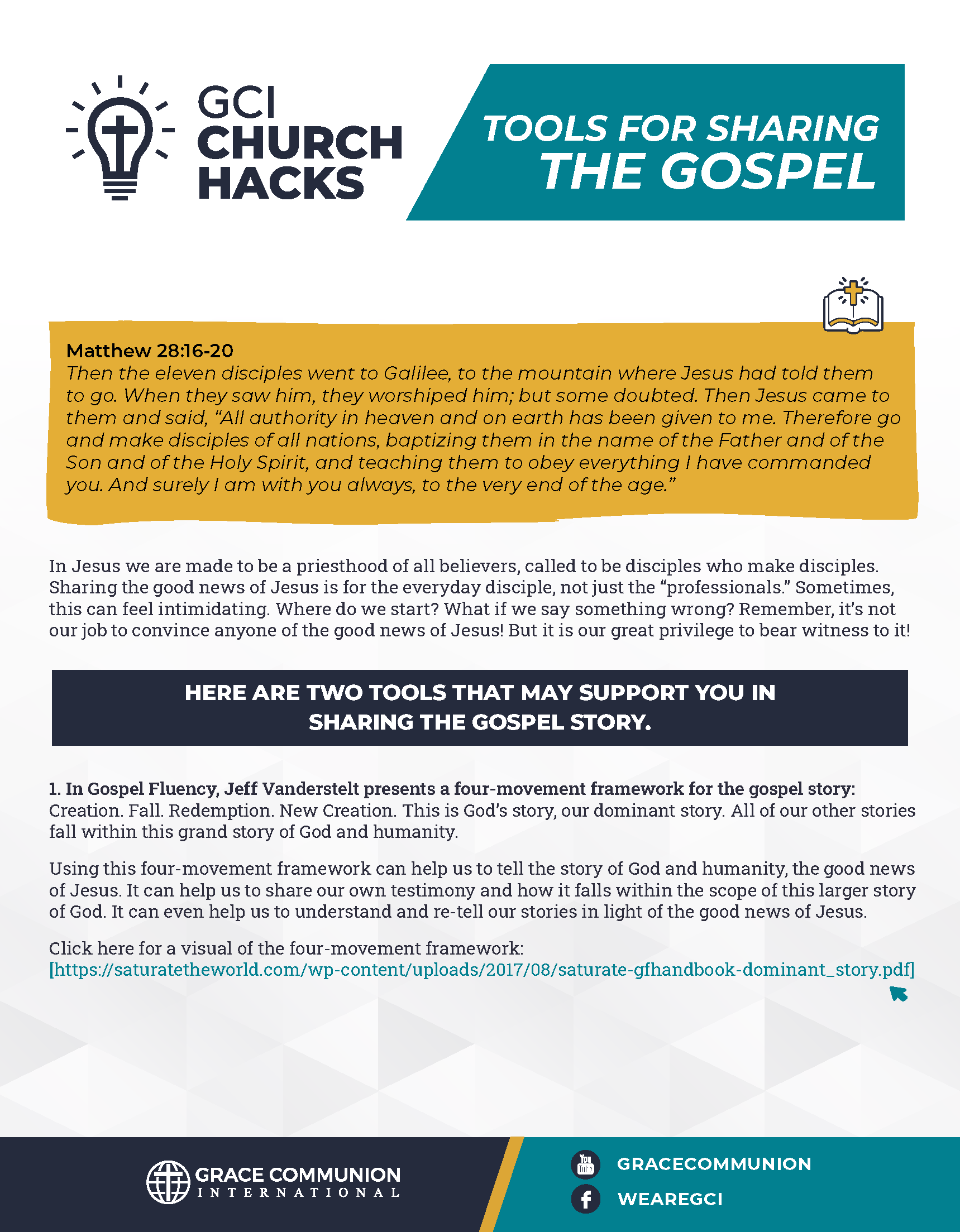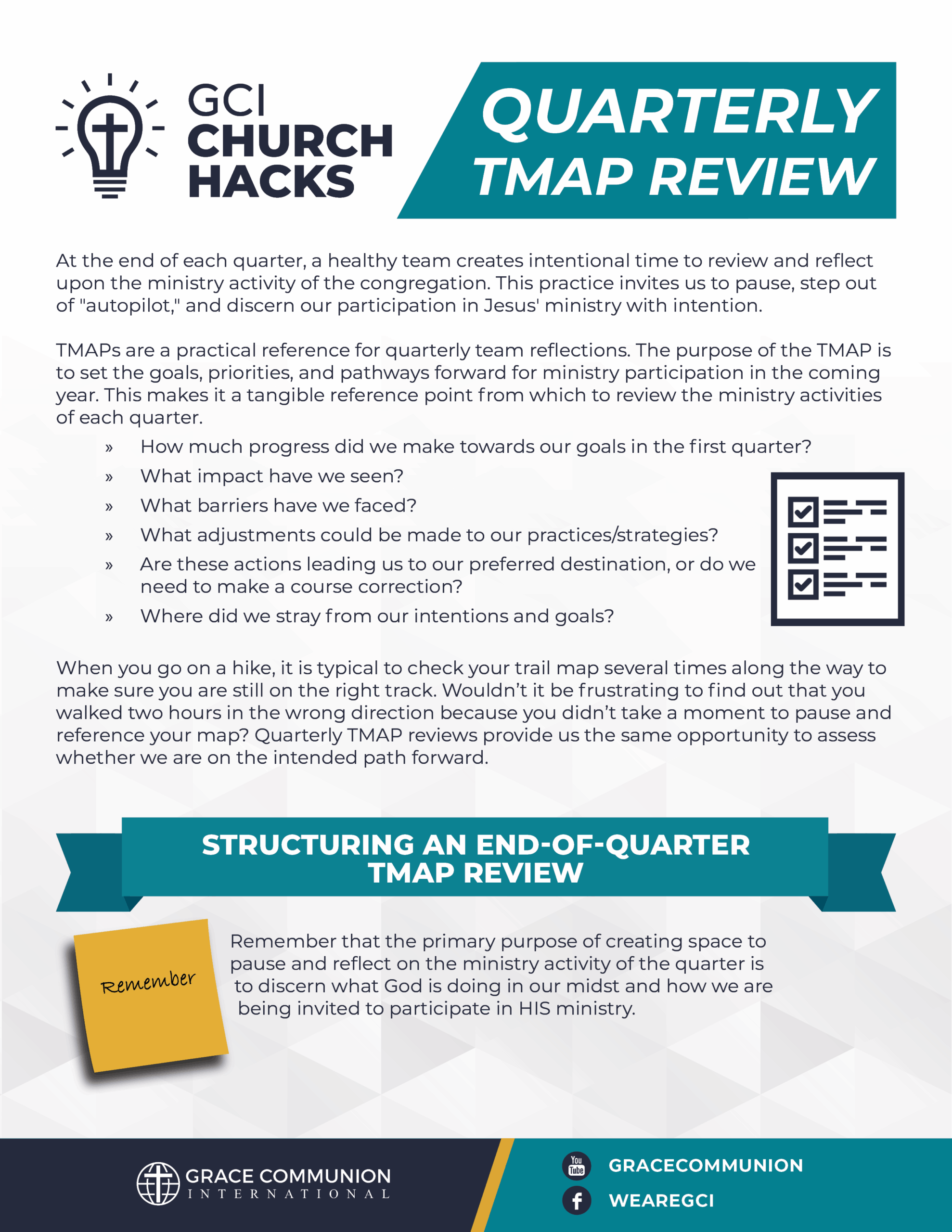Rev. Dr. Eun Strawser—Year C Proper 22-25
Welcome to the Gospel Reverb podcast. Gospel Reverb is an audio gathering for preachers, teachers, and Bible thrill seekers. Each month, our host, Anthony Mullins, will interview a new guest to gain insights and preaching nuggets mined from select passages of Scripture in that month’s Revised Common Lectionary.
The podcast’s passion is to proclaim and boast in Jesus Christ, the One who reveals the heart of God, Father, Son, and Holy Spirit. And now onto the episode.
Anthony: Hello, friends, and welcome to the latest episode of Gospel Reverb. Gospel Reverb is a podcast devoted to bringing you insights from Scripture, found in the Revised Common Lectionary, and sharing commentary from a Christ-centered and trinitarian view.
I’m your host, Anthony Mullins, and it’s my delight to welcome our guest, Dr. Reverend E.K. Strawser. Dr. Strauser is the co-vocational lead pastor of Ma Ke Alo o, which means presence in Hawaiian. These are non-denominational, missional communities multiplying in Honolulu. And, on top of that, she’s a community physician.
She’s the founder of `Iwa Collaborative, a consulting and content-developing firm to empower kingdom-grounded leaders to navigate change, grow adaptive capacity, and foster local flourishing. Prior to transitioning to Hawaii, she served as adjunct professor of medicine at the Philadelphia College of Osteopathic Medicine and of African Studies at her alma mater, the University of Pennsylvania, where she and her husband served with InterVarsity Christian Fellowship. She’s the author of the book Centering Discipleship, and she and Steve have three seriously amazing children.
Eun, thanks for being with us and welcome to the podcast. And since this is your first time joining us as a guest, we want to get to know you a bit and one of the ways we’re going get to know you, first of all, I have to ask this question. Which of these three seriously amazing children is your favorite?
[00:02:06] Eun: I am a person who does not lie. We do have favorites. All you listeners out there who are parents, you all know you do have your favorite. Ours is our oldest, our three kids know this already, but that is my favorite part of my bio, that last line that Steve and I truly do have three amazing children.
[00:02:25] Anthony: It sounds like you do. And we’re praying for the other two. I’m sure they know they’re loved as well, but I’m glad you’re being honest because sometimes we do have favorites and usually for me, it’s the one that’s in the room at the moment. And so, as we get to know you a bit more, what projects are you working on? How are you participating with the Lord Jesus Christ these days, Eun?
[00:02:47] Eun: Man, if we don’t model that our everyday kind of choices in living is how we imitate Jesus and not just through, let’s say, “projects”, then I think for any of us who are in leadership positions we would be failing at what we’re actually calling those God has given us lead and love to actually do. So, a big chunk of my day, is obviously caring for my patients here in a local context — that’s my big contribution. But Steve and I love our neighbors. We love the neighborhood that we live in. We don’t just lead and love our congregants in our church, but we love the neighbors who live on either side of our homes and in and down our street.
And I think if we learned anything about how Christians are supposed to behave and act throughout the pandemic, that probably was an unveiling of how “Christian” are imitators of Jesus. Are we really at the level of how we do our daily lives? What kinds of decisions do we make on a day-to-day basis? So, we try to, I at least try to, put that in the forefront.
[00:03:53] Anthony: Yeah, I’m amazed that as I looked over your bio, all the things that you’re doing and involved in beyond just your family, which I know is a big priority for you as a doctor.
By the way, can I get a free consultation? Because there’s something that’s been concerning me. No, I’m playing. I’m playing.
Eun: Get in line.
Anthony: Right. Right. As a doctor and embedded in the community that way, how has that helped you as a pastor, as a leader of leaders within your church environment? Just curious about how that serves the neighborhood.
[00:04:27] Eun: Yeah. I think that, especially here in Hawaii, if you’re not locally rooted in any kind of field of work that you do, then there’s a huge suspicion about why you’re here. I’m not from Hawaii originally. My family immigrated from South Korea during like the third wave of the Immigration Act lifting up so that my family and a lot of East Asians were immigrating to predominantly the East coast. So, I did most of my growing up and adulting in Philadelphia, in West Philadelphia in particular. Everyone’s having the song go through their heads right now.
But then about 15 years ago, we moved our three kids, and my husband and I, we moved to Hawaii. And Hawaii has this thing about it. You don’t have credibility or a trust that you actually contribute to the community unless you’re here for 20 years. So even 15 years sound like a long time, but we’re still five years shy of what is culturally accepted as okay. You’re not just here transitioning. You’re here to actually be a part and with our community. So, I feel like being able to doctor on top of pastoring in church planting has given me a more sense of a deeply rooted presence for the folks here in Hawaii. It’s helped.
[00:05:51] Anthony: We’re so thankful, as Paul talked about, that we participate in the sufferings of Christ, that you’re suffering in paradise in Hawaii. Thank you for doing that for the sake of the gospel, Eun. But I did want to ask you —I know you’ve written a book and you have, if I’m not mistaken, another book coming out soon, and that’s the one I want to ask you about, because I grew up in a pastor-centric church environment and also a work environment where the mindset was, if you want it done right, do it yourself, which doesn’t exactly build teams, does it? But your latest book, You Are Never Meant to Lead Alone, I’m guessing, has to provide a better pathway forward. So, would you tell us about the premise of the book and what your hopeful outcomes will be for the readers?
[00:06:34] Eun: Yeah, absolutely. My first book Centering Discipleship, I always say that it was a love letter to my local church. I feel like it is not just a book on discipleship but something that helps to celebrate that when the entire local community gets behind discipleship actually being centered in your community, in your congregation, then it’s the work of that whole team coming alive, all imitating Jesus together.
So, a lot of the work that from this new book on You Were Never Meant to Lead Alone really came from that first work. But this new book, really, I always say that it’s a love letter to myself — probably a lot of the suffering and pains, growing pains, unsolicited pain that’s brought about just from leading.
Leading is lonely. It’s hard work. It leads to a lot of burnout, and it can also lead to a lot of domineering, hurtful leadership. And so, I really wanted to write not just a leadership story that also centers somebody who might be familiar, similar to me — someone who is a woman pastor, co-vocational who is an immigrant, who is a person of color. All of these things culminating in them — can someone like that also lead?
And what kinds of environments can should all people in the church lead? And if you’re taking a look at the first-century church, it really was that nobody was meant to lead alone. That the first-century church really modeled, especially if you read all throughout Acts, that leadership was shared amongst the most unlikely of characters and heroes together.
So, it really is a reminder, not a new concept, but a reminder to the church that if you’re burnt out, feeling lonely, or you’re in a situation of domineering leadership, that’s not what church leadership was meant to be like. It’s meant to be shared because power was meant to be shared.
[00:08:39] Anthony: It’s fascinating and I know in my church tribe, denominational tribe, we’re talking a lot about team-based ministry, so I think this book will be of great interest. Where would you, in terms of outlets, content outlet, where would you send people to go buy the book?
[00:08:56] Eun: Oh, it’s Amazon. Really?
[00:09:00] Anthony: Maybe people have heard of it.
[00:09:02] Eun: Everything has been on Amazon. Or you can go to IVP also, that’s our publisher.
[00:09:19] Anthony: Okay. Again, the book is called You Were Never Meant to Lead Alone, and the author is Eun Strawser. Go get your copy.
All right, let’s do this. Let’s dive into the lectionary text that we’ll be discussing for this month. Our first pericope is 2 Timothy 1:1–14. I’m going be reading from the New Revised Standard Version, the updated edition. It is a Revised Common Lectionary passage for Proper 22 in Ordinary Time, October 5.
Paul, an apostle of Christ Jesus by the will of God, for the sake of the promise of life that is in Christ Jesus, 2 To Timothy, my beloved child: Grace, mercy, and peace from God the Father and Christ Jesus our Lord. 3 I am grateful to God—whom I worship with a clear conscience, as my ancestors did—when I remember you constantly in my prayers night and day. 4 Recalling your tears, I long to see you so that I may be filled with joy. 5 I am reminded of your sincere faith, a faith that lived first in your grandmother Lois and your mother Eunice and now, I am sure, lives in you. 6 For this reason I remind you to rekindle the gift of God that is within you through the laying on of my hands, 7 for God did not give us a spirit of cowardice but rather a spirit of power and of love and of self-discipline. 8 Do not be ashamed, then, of the testimony about our Lord or of me his prisoner, but join with me in suffering for the gospel, in the power of God, 9 who saved us and called us with a holy calling, not according to our works but according to his own purpose and grace, and this grace was given to us in Christ Jesus before the ages began, 10 but it has now been revealed through the appearing of our Savior Jesus Christ, who abolished death and brought life and immortality to light through the gospel. 11 For this gospel I was appointed a herald and an apostle and a teacher, 12 and for this reason I suffer as I do. But I am not ashamed, for I know the one in whom I have put my trust, and I am sure that he is able to guard until that day the deposit I have entrusted to him. 13 Hold to the standard of sound teaching that you have heard from me, in the faith and love that are in Christ Jesus. 14 Guard the good deposit entrusted to you, with the help of the Holy Spirit living in us.
I’m curious, Eun, what role does family have in faith? Because Paul points out how Timothy’s grandmother and mother, were instrumental in his faith. And feel free to make this personal.
[00:11:49] Eun: Oh man, even just from that reading, I need to go sit in a corner, have a good cry. It was so beautiful, Anthony. Oh, it feels so convicting, right? Hearing those words — such a personal letter from the Apostle Paul to someone, a young man that he’s invested so much of his life and work and leadership into.
So, it’s just beautiful that he talks about, what is your origin story, right? He’s trying to make it really clear to Timothy that one, that his life is not his own, that there is a whole line, a trainload of people who have come before him to get him to this point now.
So, I think family is probably a pivotal for two different reasons, especially as imitators of Jesus. I think one is, it really makes a note for us to have to remember, what are the previous sacrifices and sufferings that other people have put in to get us to our point now? I know from my own story I’m one of the first in my family line to become a Christian.
But when I go back — and as a young person, I resented the fact that I was one of the first Christians in my family and how can my parents do this? And yet when I sit down and ask them stories and stories about what happened in their own life, I just can’t help but see all of God’s hands caring for them, leading them to the point where they got to know Jesus, even though it was after me, but in the way that it cared for me.
One particular example is when I was in my mother’s womb, my parents are really impoverished. I was the last child of many numbers of children and my mom hadn’t told my father that she was pregnant. And she wanted to go and get a secret abortion. At that time in South Korea, it was very shameful, so, nobody talked about it.
And, lo and behold, she’s in the cover of night and a person happened to stop her and it happened to be the local village pastor. She wasn’t a Christian back then. It was the first time that she ever even entered the building of a church, and he asked her to come so he could pray for her.
And she was very, very nervous and he prayed that this child would, that God would use his child to help his name be known to her family. And this is my mother telling me as an adult and I just think that, oh, all this time God honored, not just me, and saved me and rescued me.
But he’s been holding my mom’s hand whether she knew him at the moment or not. He was holding my father’s hand, my grandparents and all of those things. So, I love that Paul reminds Timothy of his, both his mother and his grandmother’s faith, and how much he has gained honor and all the gifts that he has because of that.
I think the second point about family is I think that God really emphasizes the fact how we view family. If we don’t begin to, as Jesus-imitators, see family the way that God does, then we will probably contribute to a lot of bias, a lot of competition, a lot of us-versus-them mentality that honestly, that is overdone in the world today.
I think the kingdom of God is trying to offer that. If we begin to see family the way that God does, that there’s an open adoption constantly at the ready, God’s constantly welcoming a new family member, a new kid, a new brother, a sister into the fold, I think that we would think about our own families a little bit differently as well.
[00:15:37] Anthony: Yeah, I was just sharing with a friend yesterday that thanks be to God that the Holy Spirit opens our eyes to see the family resemblance in others. And once you see that family resemblance, it changes. It changes relationships, it changes the way that you interact with people on social media, right?
This is a brother, this is a sister, this is the beloved of God. How dare I not treat them with dignity and respect? And also, I thank God for the brothers and sisters in the faith that God has given us this family. And I just in this moment, Eun, I’m just so grateful for that village pastor and your mom’s receiving of that, willingness to go into an unknown territory so that God could minister to her. Praise God for that. We’re so glad you’re here.
What do you think it means to not be ashamed of our testimony of the Lord? It’s stated in verse 8, and I’m just thinking about the times in Scripture where it tells us that God is never going put us to shame. He’s never going leave us at the altar. So, what does it mean to flip that around and not be ashamed of our testimony?
[00:16:44] Eun: Yeah, I think testimony is everything, especially in a culture now where storytelling and the narrative is king. I think whatever part of culture that best tells the best story about humanity, about what love is, about what, let’s say, leadership is, or what family is, I think that constantly tells the rest of the world, the rest of culture, how they’re supposed to behave and act and what kinds of decisions they’re supposed to make.
And so, testimony which is storytelling, which is storytelling that witnesses the faithfulness and love and kindness and mercy of God — that is king. If there’s anything that any of us as Jesus followers should be really honing in our gifts and strengths and work in, it’s really fine tuning and working on, what is the testimony? Would we be able to give it at a drop of a hat, right?
I know in our community being able to give our own testimony or a witness or storytelling, we always say it’s do you know your own story as part of God’s big story? That’s the equipping we do for all of our disciples. And it’s because we really want to prepare and equip all of the Jesus followers in our local community that their story is important, but also that their story is embedded within God’s beautiful story for us and for the world.
So, if our testimony is something that we’re afraid of sharing because we think we’re terrible storytellers or we’re not good communicators, what a loss of story, what a loss of narrative — that Christians should be able to be telling the best story, the best narrative about humanity to the world today.
[00:18:36] Anthony: It reminds me of Maya Angelou’s quote that one of the great sadness in human existence is an untold story living inside you. That story needs to be told, and like you said, it’s embedded in God’s story. That’s why when I think of the grand narrative of holy scripture, like when we preach and proclaim the gospel how dare us make it boring, because it’s such a fascinating story, right? It is beautiful and it’s fascinating and it’s glorious and I know some of us are maybe not as charismatic as others, but it’s such a magnificent story. Let’s tell it well. Amen. Amen.
[00:19:11] Eun: Yeah, and I think it’s also that it shouldn’t just be a small group of people who are professional storytellers who should be equipped to tell God’s story. The whole point is that the full gospel is meant to be shared by everybody, with everybody, right? I can’t do this by myself. I need to equip my local church to know God’s full story, that they practice articulating it, communicating it, not just training and equipping Jesus followers to be good hearers of God’s story. They should be excellent sharers of God’s story.
[00:19:45] Anthony: Ooh, yes and amen. The priesthood of all believers, right?
All right, let’s transition to our next pericope of the month. It is 2 Timothy 2:8–15. It is a Revised Common Lectionary passage for Proper 23 in Ordinary Time, October 12. We’d be grateful if you read it for us, please.
[00:20:09] Eun: Absolutely.
Remember Jesus Christ, raised from the dead, a descendant of David—that is my gospel, 9 for which I suffer hardship, even to the point of being chained like a criminal. But the word of God is not chained. 10 Therefore I endure everything for the sake of the elect, so that they may also obtain the salvation that is in Christ Jesus, with eternal glory. 11 The saying is sure: If we have died with him, we will also live with him; 12 if we endure, we will also reign with him; if we deny him, he will also deny us; 13 if we are faithless, he remains faithful—he cannot deny himself. 14 Remind them of this, and warn them before the Lord that they are to avoid wrangling over words, which does no good but only ruins those who are listening. 15 Do your best to present yourself to God as one approved by him, a worker who has no need to be ashamed, rightly explaining the word of truth.
[00:21:04] Anthony: Scripture tells us that the Word of God is not chained, Eun, as Paul wrote in verse 9. For me, this seems to be quite the theological statements and more what say you.
[00:21:16] Eun: Yeah, I love that if you think about that word “a chaining” most of us can have certain images, right? For some cultures you can think of imprisonment or enslavement. Others, it feels like restriction. But I love that whatever kind of image that comes in mind for us in the word “chain,” the Apostle Paul is saying that God’s Word doesn’t interact that way.
It’s not a dealing with any type of enslavement or imprisonment or being restricted — that there’s no bounds with it. It is never chained down. It’s never restricted. It will only do what it’s meant to do — constantly. And so, I love that the Word of God not being chained also doesn’t bear responsibility on us. There’s nothing that we can do to enhance it or limit it — that God’s Word is freely just constantly expanding and growing. It gets more and more beautiful as time goes on.
So, I love that Paul’s reminder to Timothy is, I think it really is, a word like, do your best for sure. Keep on proclaiming God’s truth, but don’t worry, your human failures and mistakes will never limit God’s Word. I think the other thing about God’s Word not being chained is that restriction point — that I think that it also is a word to say that God’s Word and God’s story — again, going to that full gospel — is that it needs to be not restricted by just one culture. That whatever locally rooted place that we may all be living in or be ministering in and loving Jesus and loving others in, that the gospel makes sense to that local culture too. That it isn’t some human culture that we’re trying to present, that it’s another effort to colonize or assimilate a different culture. It’s that God’s Word is not chained up or bound up by human deeds or mechanics. That God’s Word is understandable and relatable and beautiful and true in every single local context.
[00:23:30] Anthony: Yeah, and I sometimes, this is just a personal pet peeve of mine. I don’t know if you’d agree with me, Eun. But I’ll hear people say we’ve got to make the Word of God relevant. I just find it is relevant and you contextualize it to your situation, but it’s always relevant. And it was relevant then, and it’s relevant now. And as you said, it’s liberating.
And I was just pondering a text in Luke chapter 13 where Jesus encounters a woman who’d been bent over for 18 years and he says, “You are set free.” And that’s what God does and that’s what his Word does, right? It liberates people. And if it’s not liberating, it’s not the Word of God because that’s what the Word of God does. It may mess with you at first and it may get all up in your grill, but it sets you free because that’s who God is.
I find verse 13 to be so very encouraging. If we are faithless or feeling like we’re not full of faith in one day, we find that Jesus Christ remains faithful. Do you find that encouraging and what would you want to share with our audience?
[00:24:36] Eun: Oh man. It’s not meant to be convicting, that’s for sure. Or accusatory. I love that there’s so much mercy. But what a wonderful life and call that God gives us, right, that he’s saying that we are fully capable and able to live a life imitating Jesus, that this is good for us, this is good for our family, this is good for our neighborhoods, this is good for the world around us.
But it doesn’t bank on your strength. It doesn’t demand a perfection from you, that you can have bad days and God is full of mercy. This whole thing works. This big project of the gospel transforming all of us in the world around us only works, not because of our strength. It only works because Jesus is faithful, because he’s the faithful one. I think that it’s not meant to be convicting, that it’s supposed to be great encouragement that God is truly with us in this.
[00:25:41] Anthony: And he is the faithful one. And what I find is some people are afraid when the gospel, as they would say, gives away too much.
We don’t want to be faithful, so of course we don’t. But because we know he is faithful and we live and move and have our being in him, this is a faithful response — to be faithful because he’s so good, right? And so thankful that we can look to Jesus and see not only an example, but the one who abides in us by his Spirit, helping us to be faithful and strong.
Let’s move on to our next text. It’s 2 Timothy 3:14–4:5. It is a Revised Common Lectionary passage for Proper 24 in Ordinary Time, October 19.
But as for you, continue in what you have learned and firmly believed, knowing from whom you learned it 15 and how from childhood you have known sacred writings that are able to instruct you for salvation through faith in Christ Jesus. 16 All scripture is inspired by God and is useful for teaching, for reproof, for correction, and for training in righteousness, 17 so that the person of God may be proficient, equipped for every good work. 4 In the presence of God and of Christ Jesus, who is to judge the living and the dead, and in view of his appearing and his kingdom, I solemnly urge you: 2 proclaim the message; be persistent whether the time is favorable or unfavorable; convince, rebuke, and encourage with the utmost patience in teaching. 3 For the time is coming when people will not put up with sound teaching, but, having their ears tickled, they will accumulate for themselves teachers to suit their own desires 4 and will turn away from listening to the truth and wander away to myths. 5 As for you, be sober in everything, endure suffering, do the work of an evangelist, carry out your ministry fully.
Eun, I’d be grateful for your exegesis of 2 Timothy 3:14–17. Feel free to preach, preacher.
[00:27:52] Eun: It’s a hard one, right? I do love that. I think a lot of times when people read this passage, they miss the point. I think that they can misrepresent what Paul is trying to tell Timothy to do. And I think most of the time it’s really for Timothy to just be a good preaching pastor, or a good teaching pastor, right? But no, the biggest thing that the Pastor Paul is telling why he’s talking about what scripture is like and what God’s Word is able to do, right?
[00:28:31] Anthony: Yes.
[00:28:31] Eun: It really is because he’s saying equip God’s people for every good work. Get them to a point where they are proficient in what it means to be a Jesus follower. That doesn’t necessarily just mean preach to them or teach them a scripture. It means get them ready, get them prepared.
Are all of your congregants able to be proficient? Are they competent in not just knowing a lot about God and who Jesus is and those kinds of things, but are they actually competent to live like Jesus? Are they competent and proficient to do God’s good work with their neighbors through their family, in their workplaces, at the coffee shop that they go to regularly, in the grocery store, in neighborhood parties, or neighborhood meetings, right?
I think that’s what the apostle Paul is saying, can you do the good work? Can you be faithful and endure and do this good work of not doing God’s work on behalf of your church? It’s can you get your church equipped so that they are doing God’s work together for the sake of the flourishing of the neighborhood around them?
I think that’s a strong emphasis to remember that the Apostle Paul is not telling Timothy to be a good preacher. He’s telling him to be a good equipper so that his congregation can participate in the good work that God’s already doing.
[00:29:55] Anthony: Yeah, that’s an important word. Paul wrote in Ephesians 4 that our call is to equip the saints for the works of Christ. And I think the pastors moving forward, they really need to be taken a posture of a coach, one who empowers others so that we see the whole body mature into the head who is Christ, right?
And what this keeps us from doing is what we talked about earlier from being pastor-centric, right? If we’re equipping the believers, we’re going to do this together.
[00:30:31] Eun: You must have already read my book, Anthony.
[00:30:35] Anthony: I was going to say, if you need, if you’re a pastor and you need help in this area, I know somebody who runs a collaborative called `Iwa Collaborative. They may be able to help you out with this.
As we look on Paul writes to persist in proclaiming the gospel in unfavorable times. I get the sense that right now in a post-Christian neopagan world, these are unfavorable times. So, what does it look like, Eun, to persist?
[00:31:04] Eun: Isn’t it so encouraging that the same problem that was written about all that time ago, it’s the same problem that we are facing today.
I think it’s great encouragement that Timothy and Paul are going through the same persistence in proclaiming the gospel in unfavorable times, and so are we. And I love that the apostle Paul gives Timothy a lot of clarity around what that ought to look like, right? He talks a lot about our motivation to lead.
Man, that’s so convicting, right? He’s saying, please double check why you lead, why you think God has given you this group of people to lead and love. If it’s for selfish gain and selfish desire, then you probably ought not to lead. But if it’s so that, again you are trying to proclaim God’s truth because you believe that God’s truth is the only transforming power that will actually, in real life, in real time, transform a community of people to also want to participate in what God’s doing in the world around them, man, what a call for all of us. But if it has any inkling of a selfish desire or selfish ambition, and this is why we are fulfilling our call, then we probably should step aside.
So, I think that the first thing around proclaiming the gospel in unfavorable times is really to review our own motivations as leaders. Do we do this because we think that there’s a personal gain for us in it, we get popularity somehow? We get to have power and control. We just feel good having this mantle. Or do we do it for the sake of other people?
I think the second thing about persistence is, I love that it just relies on God’s truth. That if you really stick to proclaiming God’s truth, you don’t have to do this weird, convincing, performative perfection dance. Let God’s Word do its thing. I think that is what the Apostle Paul is telling Timothy — live out God’s truth. Proclaim God’s truth in every way that you are equipping other people or living your own life or making decisions. Like, if you stick close to God’s Word and God’s truth, … that is the way to persevere through unfavorable times.
God’s Word is not that popular most of the time. When we are speaking truth against power, that’s not popular most of the time. If we’re naming the fact that there are people who are ostracized and marginalized in society, that’s not popular to talk about. If we talk about that, really, essentially, the gospel is really very comforting, it ought to be comforting to those who are the most uncomfortable in society and make uncomfortable those who experience most comfort in society. That is an upside-down way of thinking, right? It should have an impact. And so, I think that gospel is made for unfavorable times.
[00:34:12] Anthony: It is, and I couldn’t help but think of that old statement that the gospel should comfort the afflicted. But it should afflict the comfortable. And that’s what it does, and I’m reading this a great new little book called Preaching in a New Key. And it’s about preaching to post-Christian societies like we’re living in.
And the author of the book said this. Are we — going back to what you asked — what is our motivation? Are we motivated because we’re called to preach or are we just offloading trauma? And I was like, whoa. It’s in your face, but it’s true.
We’ve got to check ourselves as ministers of the gospel. Is it love? Because that’s the motivation, right? It is love. The love of Christ may manifest in our lives, and that’s why we proclaim this good news in the face of opposition, for sure.
Alright friends, we’re down to our last text. Time is flying by. It is 2 Timothy 4:6–8, 16–18. It is a Revised Common Lectionary passage for Proper 25 in Ordinary Time, October 26. Would you read it for us please?
[00:35:30] Eun:
As for me, I am already being poured out as a libation, and the time of my departure has come. 7 I have fought the good fight; I have finished the race; I have kept the faith. 8 From now on there is reserved for me the crown of righteousness, which the Lord, the righteous judge, will give me on that day, and not only to me but also to all who have longed for his appearing. 16 At my first defense no one came to my support, but all deserted me. May it not be counted against them! 17 But the Lord stood by me and gave me strength, so that through me the message might be fully proclaimed and all the gentiles might hear it. So I was rescued from the lion’s mouth. 18 The Lord will rescue me from every evil attack and save me for his heavenly kingdom. To him be the glory forever and ever. Amen.
[00:36:17] Anthony: Amen. “But the Lord stood by me and gave me strength.” Those are such good words. What would you say to Christians who want to declare with confidence like Paul did, “I fought the good fight.” Maybe they haven’t finished the race yet, but they’re running the race faithfully. What gives Paul the right to make such a bold claim?
[00:36:37] Eun: Oh, I’m like crying in my little corner again, reading that passage. I actually think that it’s what Paul has been talking about all along. It’s that it’s because Jesus has already done that work. He’s already fought that fight. He’s already finished that race. And again, he is the one who is most faithful.
So, I feel like Paul’s bold claim isn’t really about him. His boldness and his confidence still rest in the fact that he can do all of these things and proclaim all these things about himself because he’s relied in utter, utter dependence on Jesus the Christ.
[00:37:17] Anthony: Preach. Yes.
[00:37:18] Eun: I think that, and I just love that the things that he talks about is he’s going receive this crown of righteousness and all these things, and it’s because all he did was long for Jesus, long to be in his presence, long for his appearing. I love that. That’s where the effort lies in. Do we like love Jesus that much?
When you think about a bold proclamation in today’s society that maybe humiliates us or makes us feel a little bit shy, but we still feel like it’s worth it to do it, it really always centers around love, doesn’t it? Romantic love and those silly stories and movies and things. So, we’re captivated by it because some, for some reason, it transforms people to do these things. And I love that at the end, Paul is proclaiming that he’s loved Jesus, that he’s loved God, that he’s longed for him all this time. And I think that’s where his boldness comes from.
[00:38:19] Anthony: The scripture says, but the Lord stood by me and gave me strength. Verse 17. As a final word, Eun, how have you personally experienced the Lord standing by you and giving you strength in your own life? We’d love to hear from you.
[00:38:35] Eun: Yeah, I think again, my new book You Were Never Meant to Lead Alone, a love letter to myself, and I say this, embarrassed, a little bit shy about it, but I wept so much having to recall the suffering and loneliness and pain points in this life, really, really trying to lead in ways and minister in ways where it felt like suffering so many times. And I know that my only strength really is because the Lord stood by me.
I remember when my husband and I had visited Jerusalem and we were in the garden of Gethsemane. And it was such a busy tour and things, but they gave us one little quiet moment to be able to sit and reflect. And I remember just sitting in that garden and crying out to God because it was right after experiencing such a depth of betrayal within the church context.
And I feel like Jesus said, “I understand what it means to be betrayed.” This is him telling me in the Garden of Gethsemane. And he said, “And yet, I still moved forward. I still said a “yes” to being crucified because there’s resurrection on the other side of it.” And I felt like only Jesus could call me forward that way because he’s experienced all of the suffering and so much in greater amount than I ever will.
And so, yeah. The Lord stood by me and gave me strength in my darkest of times, in times of betrayal, in times of loneliness, in times of failure, the mistakes. The Lord stood by me and gave me strength.
[00:40:26] Anthony: And it seems that way to me, Eun. Thank you for sharing that story of your own experience.
The scripture time and time again takes us back to remembering, like, remember what the Lord has done for you. I’m thinking of Hagar in the desert when God meets her in her moment of just great distress and saves her, and she calls him El Roi, the God Who Sees. I think it’s so important that we remember, God sees us; he sees the pain; he understands. We have a high priest who understands.
And that’s just such a good word because anytime we’re standing up proclaiming the gospel in a church, there are people in the pews that are really, really hurting. And to be able to say … and I thank you for sharing your story, and I know you said it’s maybe hard to talk about, but I’m grateful for that because your strength that you receive from the Lord strengthens me.
And so, in that way, as I look back on my own life, I give thanks for the times that I was walking through the valley, the shadow of death, because it was in those times that I really sensed the Lord’s presence and his faithfulness and his strength. I give thanks for those times. I don’t want to go back. I don’t want to do it again, but I’m so thankful, and I think it’s just so important as part of our testimony, we share those things, don’t you, because I just think it strengthens the whole body. And so, we do that. And I just thank you for you sharing yours.
I’m grateful for you and I’ve told you this before, but you can be my pastor anytime. It’d be awesome. I’d love to move to Hawaii, but I don’t think that’s in the cards for me. But again, I’m just so grateful for you. And folks check out her books on Amazon, the two books that we’ve previously mentioned.
And I certainly want thank our team that helped make this podcast possible. Reuel Enerio, Elizabeth Mullins, and Michelle Hartman. So grateful to work with them and, Eun, as is our tradition here on Gospel Reverb, we close with a word of prayer. So, thank you for being here and please pray for us.
[00:42:41] Eun: I’d love to. Jesus, I just thank you that you see us. Thank you for being the God who takes the time, makes the effort, values seeing each and every one of us, and I pray that you would give us the courage and boldness and deep sense of joy and love to also see you. Would you make us seeing you be visible and public to those around us? Would our ability to long for your appearing, long for your presence, long to see you face to face be such a love that proclaims to the world around them an invitation to enter into this kind of relationship with you. Where it’s full of flourishing and mercy and grace and truth and beauty that none of us could really imagine fully. Thank you that you understand suffering, you understand betrayal, you understand all of our failures and unfaithful moments, and you remain to be the one who is faithful and is for us. It’s in your good name we pray. Amen.
[00:43:58] Anthony: Amen.
Thank you for being a guest of Gospel Reverb. If you like what you heard, give us a high rating, and review us on iTunes, Spotify, or wherever you get your podcast content. Share this episode with a friend. It really does help us get the word out as we are just getting started. Join us next month for a new show and insights from the RCL. Until then, peace be with you!

 By Joshila Philip, India National Ministry Team
By Joshila Philip, India National Ministry Team


 Leslie and Brenda Asare-Akoto, Ghana National Youth Pastors
Leslie and Brenda Asare-Akoto, Ghana National Youth Pastors
 The host of Gospel Reverb, Anthony Mullins, welcomes Rev. Dr. Strawser to unpack the October 2025 RCL pericopes. Dr. Strawser (DO, Philadelphia College of Osteopathic Medicine) is the co-vocational lead pastor of Ma Ke Alo o (which means “presence” in Hawaiian)—non-denominational missional communities multiplying in Honolulu—and a community physician at Ke Ola Pono. She is the founder of `Iwa Collaborative, a consulting and content-developing firm to empower kingdom-grounded leaders to navigate change, grow adaptive capacity, and foster local flourishing. Prior to transitioning to Hawaii, she served as adjunct professor of medicine at the Philadelphia College of Osteopathic Medicine and of African Studies at her alma mater, the University of Pennsylvania (where she and her husband served with InterVarsity Christian Fellowship), after finishing her Fulbright scholarship at the University of Dar es Salaam. She is the author of Centering Discipleship, and she and Steve have three seriously amazing children.
The host of Gospel Reverb, Anthony Mullins, welcomes Rev. Dr. Strawser to unpack the October 2025 RCL pericopes. Dr. Strawser (DO, Philadelphia College of Osteopathic Medicine) is the co-vocational lead pastor of Ma Ke Alo o (which means “presence” in Hawaiian)—non-denominational missional communities multiplying in Honolulu—and a community physician at Ke Ola Pono. She is the founder of `Iwa Collaborative, a consulting and content-developing firm to empower kingdom-grounded leaders to navigate change, grow adaptive capacity, and foster local flourishing. Prior to transitioning to Hawaii, she served as adjunct professor of medicine at the Philadelphia College of Osteopathic Medicine and of African Studies at her alma mater, the University of Pennsylvania (where she and her husband served with InterVarsity Christian Fellowship), after finishing her Fulbright scholarship at the University of Dar es Salaam. She is the author of Centering Discipleship, and she and Steve have three seriously amazing children.



